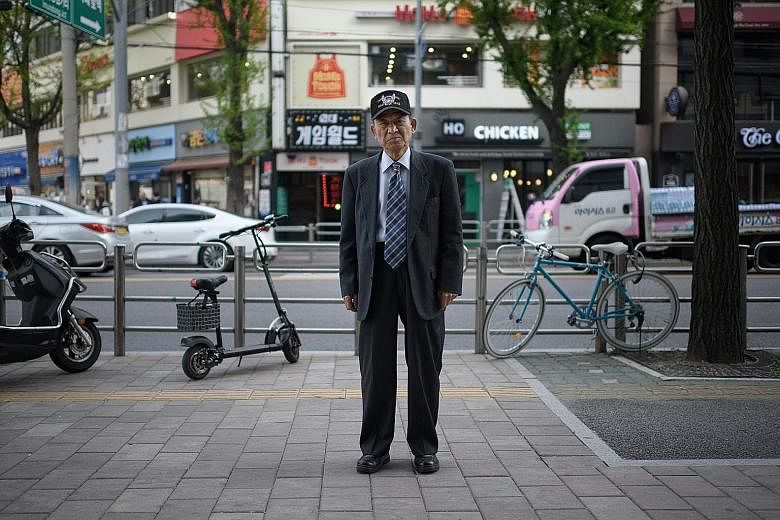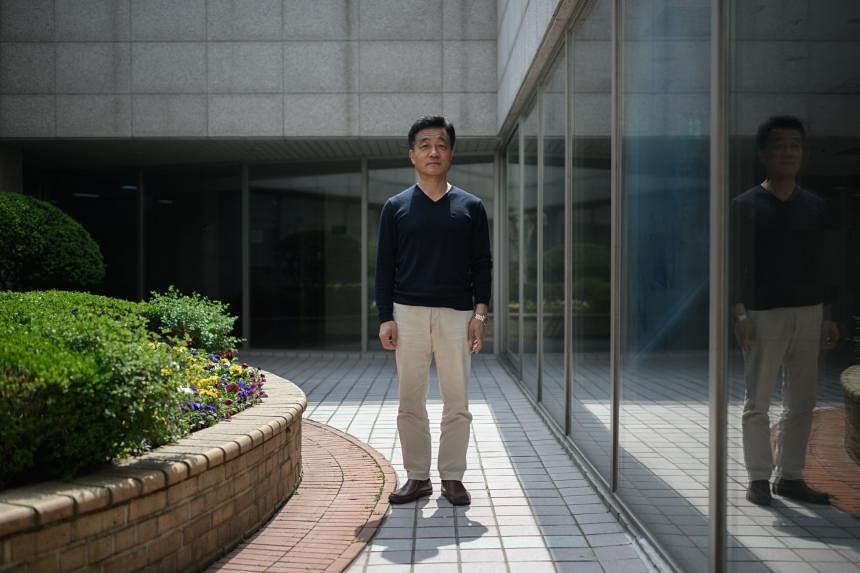In the freewheeling democracy of South Korea, views on the authoritarian North, the prospects for reunification, and today's summit between President Moon Jae In and Pyongyang's leader Kim Jong Un vary widely. Attitudes differ along both generational and political lines, Here are three South Koreans with very different perceptions of the situation.
THE SURVIVOR
Retired English professor Lew Je Bong, 84, was a teenager during the Korean War and remembers walking miles across the war-ravaged country with his family in search of safety after Pyongyang's invasion.
He is still wary about the North's intentions and warns that the South should not play into its hands.
Pyongyang is the "world's best liar", he said angrily, and Seoul should learn from its history of broken promises. "My hope for the South-North summit on April 27 is that our President does not get tricked," he said. "They will never give up nuclear weapons, and if they don't, nothing should be negotiated."
Like many in his generation, Mr Lew places utmost priority on national security and firmly believes the United States - Seoul's key military ally - will not allow another North Korean invasion.
"It won't happen," he said reassuringly. "Because America will not tolerate it."
He hopes the younger generation will never have to experience the pains of war, believes in a "peaceful reunification" - achieved on the South's terms - and strongly opposes any role for Pyongyang.
THE BUSINESSMAN
Businessman Lee Jeong Jin, 52, almost cried with joy when he heard that the two Koreas will hold their first summit after a decade of tensions. He is among the generation of South Koreans who attended college in the 1980s amid heightened pro-democracy and anti-US activism, partly fuelled by resentment over the division of the Koreas after World War II and Washington's alliance with the military dictators of the time.
He was once stationed at the Kaesong Industrial Complex in the North as the top on-site manager for the South's Korea Telecom. He worked with North Koreans every day. "I realised that we could quickly achieve harmony and become a prosperous nation."
He is upbeat about the diplomatic developments and welcomes them as a promising step towards lasting peace on the peninsula.
"We are one people," he said. "We've been divided for 70 years. The fact that both sides are willing to discuss peace and overcome differences is a big step forward."
He dismissed scepticism over Pyongyang's intentions. "I don't know why we have to label it as a trick or deceit. If that is so, what is the point of dialogue?"
THE YOUTH
News of today's summit has been making headlines for weeks in South Korea and around the world, but hip-hop artist Choi Won Young, 19, does not care.
"I saw a headline (about it) once but I don't know it well," he said. "I think it is just South Korea and North Korea meeting to talk, but I am not that interested."
Younger South Koreans like Mr Choi tend to have less connection with the nuclear-armed North, having spent their adult lives in a culturally vibrant democracy. Some worry about the cost of reunification, others fear the prospect of low-cost competition for jobs.
A survey conducted by the state-run Korea Institute for National Unification found that more than seven out of 10 South Koreans in their 20s now oppose reunification.
"I don't really feel the need for it," Mr Choi said of reunification. "North Korea's image is not good in South Korea."
AGENCE FRANCE-PRESSE



